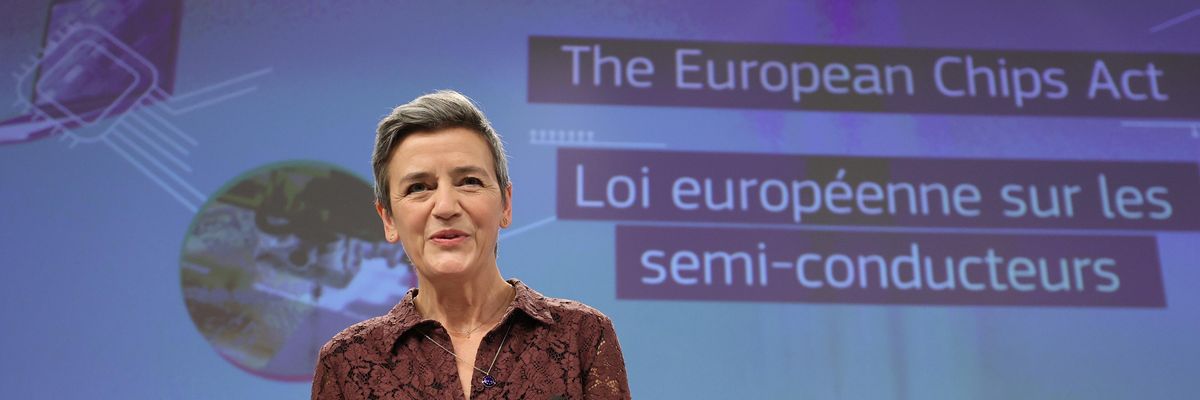Digital and consumer rights advocates on Friday hailed a landmark European Union law aimed at curbing Big Tech's monopolistic behavior.
"This is a big moment for consumers and businesses who have suffered from Big Tech's harmful practices."
Negotiators from the European Parliament and European Council agreed late Thursday on the language of the Digital Markets Act (DMA), which aims to prevent major tech companies from anti-competitive practices by threatening large fines or possible breakup.
Ursula Pachl, deputy director-general at the European Consumer Organization (BEUC), an umbrella advocacy group, said in a statement that "this is a big moment for consumers and businesses who have suffered from Big Tech's harmful practices."
"This legislation will rebalance digital markets, increase consumer choice, and put an end to many of the worst practices that Big Tech has engaged in over the years," she added. "It is a landmark law for the E.U.'s digital transformation."
Cedric O, the French minister of state with responsibility for digital, said in a statement that "the European Union has had to impose record fines over the past 10 years for certain harmful business practices by very large digital players. The DMA will directly ban these practices and create a fairer and more competitive economic space for new players and European businesses."
"These rules are key to stimulating and unlocking digital markets, enhancing consumer choice, enabling better value sharing in the digital economy, and boosting innovation," he added.
Andreas Schwab, a member of the European Parliament from Germany, said that "the Digital Markets Act puts an end to the ever-increasing dominance of Big Tech companies. From now on, Big Tech companies must show that they also allow for fair competition on the internet. The new rules will help enforce that basic principle."
BEUC's Pachl offered examples of the new law's benefits:
Google must stop promoting its own local, travel, or job services over those of competitors in Google Search results, while Apple will be unable to force users to use its payment service for app purchases. Consumers will also be able to collectively enforce their rights if a company breaks the rules in the Digital Markets Act.
Companies are also barred from pre-installing certain software and reusing certain private data collected "during a service for the purposes of another service."
The DMA applies to companies deemed both "platforms" and "gatekeepers"--those with market capitalization greater than EUR75 billion ($82.4 billion), 45 million or more monthly end-users, and at least 10,000 E.U. business users. Companies that violate the law can be fined up to 10% of their total annual worldwide turnover, with repeat offenders subject to a doubling of the penalty.
"The DMA is a major step towards limiting the tremendous market power that today's gatekeeper tech firms have."
Diego Naranjo, head of policy at the advocacy group European Digital Rights (EDRi), said in a statement that "the DMA will put an end to some of the most harmful practices of Big Tech and narrow the power imbalance between people and online platforms. If correctly implemented, the new agreement will empower individuals to choose more freely the type of online experience and society we want to build in the digital era."
To ensure effective implementation, BEUC's Pachl called on E.U. member states to "now also provide the [European] Commission with the necessary enforcement resources to step in the moment there is foul play."
EDRi senior policy adviser Jan Penfrat said that while "the DMA is a major step towards limiting the tremendous market power that today's gatekeeper tech firms have," policymakers "must now make sure that the new obligations not to reuse personal data and the prohibition of using sensitive data for surveillance advertising are respected and properly enforced by the European Commission."
"Only then will the change be felt by people who depend on digital services every day," he added.

